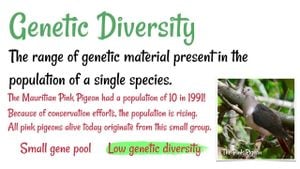Raphael Glucksmann, the prominent politician and member of the Place publique movement, has been making waves recently through his collaborations with the Socialist Party and his active engagement in the media. His initiatives are particularly aimed at Villeneuve-d’Ascq, where he has unleashed a joint effort to discover the needs and desires of the local populace. This survey, which is set to continue for six months, will serve as the foundation for the program they hope to implement by 2026.
During the recent joint New Year’s wishes event held by both parties, Glucksmann emphasized the importance of their partnership, stating, “Ce n’est pas encore la question,” indicating their cautious yet committed approach to collaboration. This move is seen as the natural progression of the camaraderie they cultivated during the recent European elections, garnering attention as political alliances shift within France.
Glucksmann's political activities haven’t gone unnoticed by the media. He has appeared on numerous talk shows, where discussions about France's pressing political climate frequently arise. One notable remark made during the talk show C à Vous captured the atmosphere succinctly: "La France est touchée par une pénurie des Ministres,” underscoring concerns about leadership availability at different governmental levels.
Such statements reflect the urgency surrounding the upcoming municipal elections as voters grapple with varying levels of commitment from political entities. By focusing on local sentiments through the joint survey with the Socialist Party, Glucksmann seeks to integrate the voices of Villeneuvois citizens directly, helping to shape their local governance with active participant feedback.
The collaboration with the Socialist Party marks not just a tactical alliance but also symbolizes broader ideological unity among left-leaning parties amid growing political divisions. The groundwork laid by Glucksmann’s initiatives aligns with the needs of the electorate, addressing contemporary issues head-on—an important aspect of engaging modern voters.
Media appearances of Glucksmann juxtaposed with these local surveys demonstrate how he leverages his platform to spotlight larger systemic issues within France. His insights during these discussions often challenge prevailing narratives about political representation, highlighting the disconnect some citizens feel toward political leaders and their actions.
Glucksmann's public persona also evokes reflections on the generational shifts within politics. His ability to negotiate between traditional party structures and grassroots movements may well define the contours of future political engagement, pushing for genuine dialogues about policy and community needs.
Overall, as Raphael Glucksmann continues to navigate the intersections of political movements and media discourse, he embodies the hopes for contemporary political dynamics—those focused on inclusivity, representation, and real local governance derived from constituents' insights. The forthcoming developments, particularly as they relate to the municipal elections of 2026, will be pivotal for both Glucksmann and those he seeks to represent.



